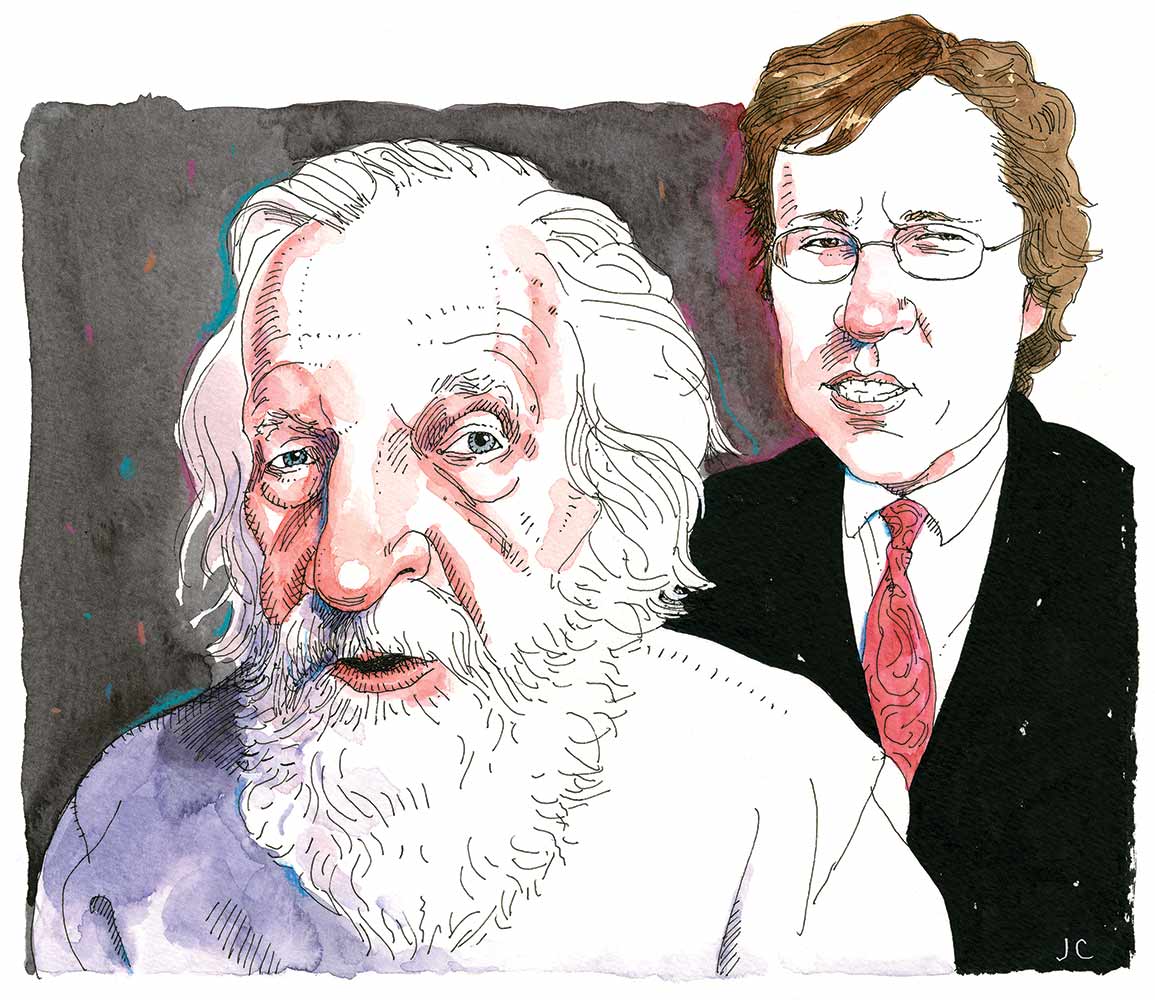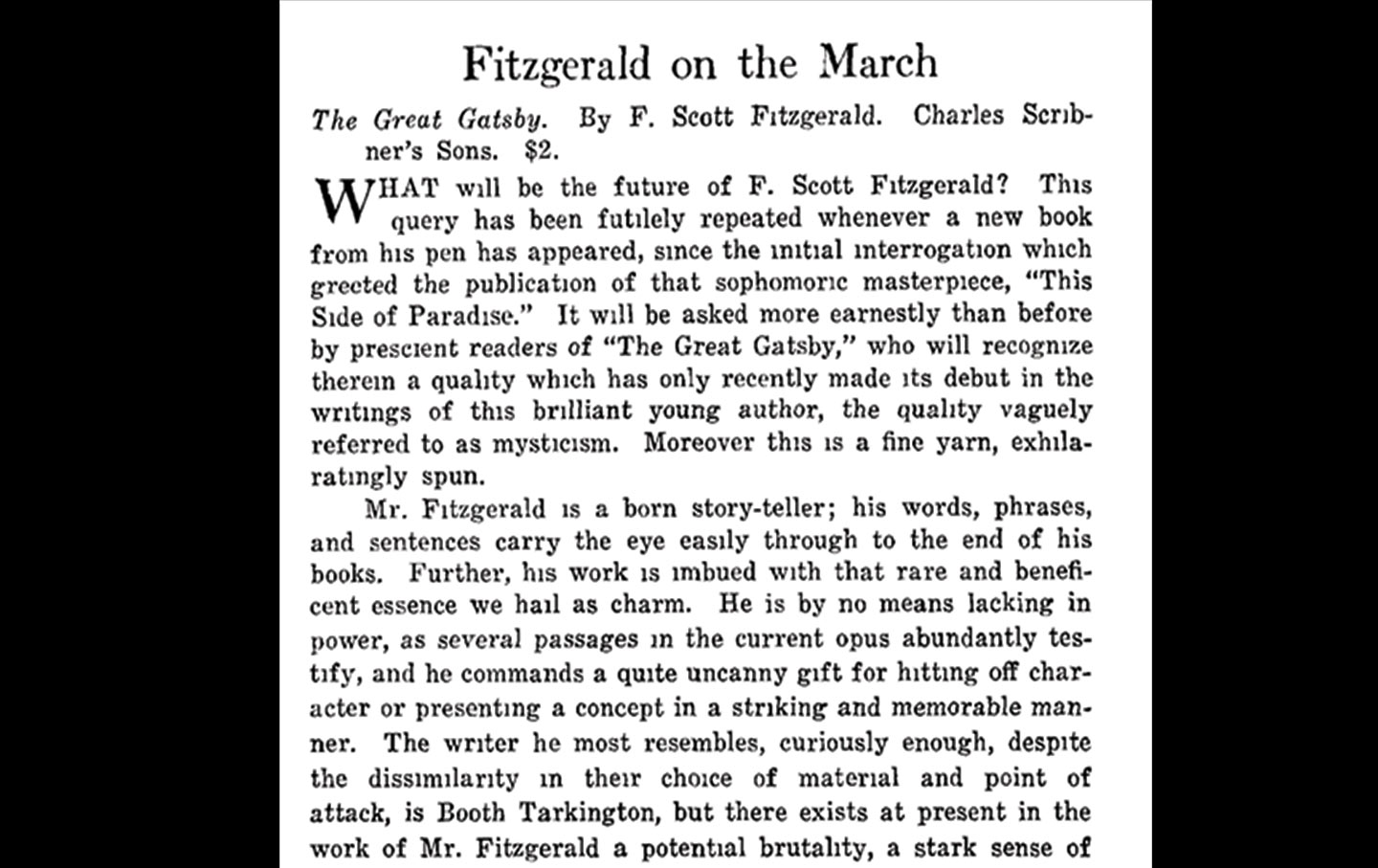Empire’s Critic
The worlds of Noam Chomsky.
The Worlds of Noam Chomsky
If ordinary Americans know one critic of the American Empire, it’s almost certainly Chomsky.

Noam Chomsky is the most famous critic of US empire in the world. No single living intellectual comes close. Even John Mearsheimer, the international relations theorist well-known for his critiques of US foreign relations, can’t hold a candle to Chomsky: A Google Ngram search quickly reveals how many more times Chomsky’s name appears in English-language texts than Mearsheimer’s.
Books in review
The Myth of American Idealism: How U.S. Foreign Policy Endangers the World
Buy this bookAnd Chomsky is not just one of the most cited writers on the subject of US foreign relations; he’s that rare scholar who has made the leap from academia to popular culture. His name appears in songs by the punk band NOFX (“And now I can’t sleep from years of apathy / All because I read a little Noam Chomsky”) and the comedian Bo Burnham (“My show is a little bit silly / And a little bit pretentious / Like Shakespeare’s willy / Or Noam Chomsky wearing a strap-on”). Robin Williams’s psychologist character in Good Will Hunting brings up Chomsky to demonstrate his intellectual bona fides to Will himself. And in my favorite reference, on the TV show Community, the character Britta—an annoying lefty poseur whose claim to fame is that she “lived in New York”—has a cat named Chomsky. If ordinary Americans know one critic of the American Empire, it’s almost certainly Chomsky.
Though he was trained as a linguist, it’s not especially surprising that Chomsky has become best known for his political opinions. Born in 1928 and raised in Philadelphia, he wrote his very first article—which appeared in the February 1939 edition of his fifth-grade newspaper—on, as he remembers, “the spread of fascism in Europe and its apparently inexorable conquest and the terror this incited.” Indeed, the essay that made Chomsky’s name was not an esoteric piece on linguistics but rather his 1966 “The Responsibility of Intellectuals,” a manifesto that lambasted those scholars who, Chomsky believed, were more interested in cozying up to power than speaking truth to it.
Like many great essays, “The Responsibility of Intellectuals” was Chomsky’s response to something that annoyed him: how academics around Harvard and MIT (where he taught) aligned themselves with the John F. Kennedy administration regardless of its policies. “There was a kind of Camelot fever,” Chomsky recalls. “Great excitement among, say, Cambridge intellectuals…. There was a shuttle, an airline shuttle…that went from Boston to Washington, up and back through the day. In the morning, you could literally see the intellectual elite lining up at the shuttle so they could go to Washington and rub shoulders with the great and the powerful, [and they would] come back in the evening on the shuttle all excited.”
As the Vietnam War heated up, so did Chomsky’s righteous rage. It galled him that scholarly war hawks like Harvard historian Arthur M. Schlesinger Jr.—JFK’s confidant—and MIT economic historian Walt Rostow—Lyndon Johnson’s national security adviser—used their considerable brainpower to grease the wheels of the imperial war machine, oftentimes through propagandistic statements to the public. This, Chomsky insisted, betrayed the intellectual’s duty. “It is the responsibility of intellectuals,” he avowed in no uncertain terms, “to speak the truth and to expose lies.”
Ever since that essay, Chomsky has done exactly that, dedicating himself to the task of speaking truth, if not to power, then to the tens of millions of people in the United States and abroad who want to understand why the so-called indispensable nation has acted in the world as it does. In his dozens of books on US foreign policy, Chomsky has painstakingly elucidated the many crimes committed by the United States all over the globe. Beyond his criticisms, he has also articulated a democratic alternative to the present world order, one in which ordinary people come together to resist the American Empire and the incredible damage it causes.
The Myth of American Idealism: How U.S. Foreign Policy Endangers the World is Chomsky’s latest book and, given his advanced age, probably his last. Coauthored with Nathan Robinson, the prolific editor of the left-wing magazine Current Affairs, it contains all of Chomsky’s hallmarks. Written in a direct, no-nonsense style, full of shrewd analysis and layered with potent details, it is an excellent summary—and condemnation—of how the United States has shaped the world since it became a global superpower after World War II. Like almost all of Chomsky’s books, it fulfills the intellectual’s responsibility to speak the truth and to expose lies—including what Chomsky considers the biggest falsehood of them all: Americans’ naïve belief that their country is “committed to promoting democracy and human rights” around the world. This is the “myth of American idealism” referenced in the book’s title, and it is a myth that Chomsky and Robinson dismantle piece by piece.
The case that Chomsky and Robinson lay out is difficult to deny, if familiar to those aware of the ignominious history of US foreign relations since 1945. The book presents a horrifying chronology: our 1947 intervention in Greece to suppress a popular communist uprising; our subversion of Italy’s 1948 election; our repression of democratic and left-wing groups in postwar Japan and South Korea; our participation in the 1953 overthrow of Iran’s Mohammed Mossadegh, the 1954 overthrow of Guatemala’s Jacobo Árbenz, and the 1961 assassination of the Democratic Republic of the Congo’s Patrice Lumumba; our many failed attempts to murder or overthrow Cuba’s Fidel Castro; our participation in the annihilation of Indonesian communists and fellow travelers; our destruction of North and South Vietnam, Cambodia, and Laos; our involvement in the 1973 overthrow of Chile’s Salvador Allende; our provision of aid to Guatemala as its government prosecuted a genocide; and so on, down to the present day.
After finishing The Myth of American Idealism, no honest reader could possibly deny that the United States has been involved in some of the worst crimes of the 20th and 21st centuries and is directly and indirectly responsible for the death and dispossession of tens of millions of people. The truth is obvious for those with eyes to see: Since its rise to global power in the 1940s, the United States has not been a benevolent hegemon. Rather, and like the many empires that preceded it, the American Empire is a cruel one that resorts to violence and subterfuge whenever we Americans deem it necessary. And we do deem it necessary. A lot.
Chomsky and Robinson tell this story in the sharp, serious, and to-the-point tones of a biblical prophet, a figure that Chomsky, with his long and snowy beard and hair, has over time come to resemble. We Israelites have sinned, and in addressing us, the pair’s prose simmers with a bracing anger that few modern writers are willing to adopt.
Problems emerge, however, when Chomsky and Robinson relate the practice of US foreign policy to the myth of American idealism that they rightly deplore. In effect, the two maintain that most ordinary Americans embrace an idealistic view of their nation that excuses “behavior that has caused colossal amounts of death and destruction.” There is no doubt that the myth of American idealism is repeated ad nauseam by politicians and their stenographers in the mainstream media. But do most people truly believe it?
Chomsky’s most influential book is his 1988 Manufacturing Consent: The Political Economy of the Mass Media, which he cowrote with the economist Edward S. Herman. In it, Chomsky and Herman argue that Americans are the victims of propaganda and misinformation that for decades has “manufactured consent” for an obviously rapacious, ruinous, and even evil US foreign policy.
For Chomsky and Herman, the primary manufacturer of this consent is not the American state itself but the supposedly private media. The idea of a “free press,” they insist, has always been misleading: While it is true that in American society there is little “formal censorship,” media organizations have nonetheless sought to “inculcate and defend the economic, social, and political agenda of privileged groups that dominate the domestic society and the state.” Ironically, it is the very lack of official censorship that provides the news with a patina of objectivity and has made the American mass media so effective at manufacturing consent for elite interests. Americans, in short, are regularly fed (and unknowingly consume) a steady diet of propaganda; as in authoritarian societies, they are “managed and mobilized from above.”
To some degree, Chomsky and Herman are correct in their claims. As Chomsky and Robinson note in The Myth of American Idealism, mainstream media organizations have dedicated themselves to “reinforcing and spreading the basic doctrines of U.S. foreign policy, portraying our aggression and terror as self-defense”; have “helped the state manufacture new enemies”; have insisted that whatever adversaries we are presently fighting are “diabolical and bent on our destruction”; and have ensured that American “wrongdoing is consigned to the memory hole, or recast as another ‘noble mistake.’”
Popular
“swipe left below to view more authors”Swipe →There is no doubt that all of this is true. But even if propaganda abounds, is it accurate to say that most Americans believe it? Do Americans really consider US power abroad to be a beneficent force? There is ample evidence to suggest they do not.
To start, one could go back to the 1960s, when a massive movement against the Vietnam War spread across much of the United States and demonstrated just how many Americans had come to doubt the notion of US benevolence. Or one could look at the 1980s, which witnessed significant protests against US policy in Central America. Even in the wake of the September 11, 2001, attacks—a period in which many Americans were baying for blood—a large protest movement erupted in an attempt to prevent the US invasion of Iraq.
Today, the myth of American idealism is in even less repute. Simply put, the Global War on Terror and its myriad and manifest failures have revealed to Americans the damage that their nation has done, and continues to do, abroad.
Take, for example, the use of the term “American Empire,” a pejorative phrase that implicitly places the United States in a violent, imperial lineage. Whereas the term had previously been confined to the radical socialist and libertarian fringes, in the past two decades it has gone mainstream. Books with titles like The Secret History of the American Empire and How to Hide an Empire have become bestsellers, while outlets like National Public Radio host interviews on subjects like “The History of U.S. Intervention and the ‘Birth of the American Empire.’” At the same time, mainstream cultural products like the movie Captain America: Civil War and the Call of Duty: Black Ops video game series portray the United States as either a rogue nation or one run by a bunch of ne’er-do-well psychopaths who embrace violence for violence’s sake.
If Americans’ language and pop culture suggest anything, it is that many of us do not believe that our country is an idealistic one focused on doing good in and for the world. We may support it; we may trust that it does what is necessary. But we no longer accept its benevolence. We know that we’re an empire, and not an especially kind one at that.
Intriguingly, polling data shows that Americans are slowly turning away from the idea that the security and prosperity of both our nation and the world depend on US global “leadership.” A recent poll by the Chicago Council on Global Affairs, for example, reveals that “fewer than six in 10 Americans think the United States should play an active role in world affairs.” Another poll, this time by Gallup, puts that number at 65 percent. While these polls still do indicate that most Americans believe the United States should remain involved in international politics, things look different when you divide Americans by age. A Pew poll, for instance, discovered that just 33 percent of adults under the age of 35, and 49 percent of those between the ages of 35 and 49, consider it “extremely or very important that the U.S. play an active role in world affairs,” compared with 66 percent of those in the 50–64 age group and 74 percent of those above 65.
The fact that young people have become ever more skeptical of US hegemony indicates that Chomsky and Herman’s propaganda model no longer accurately reflects reality. Besides the undeniable damage caused by American belligerence worldwide, a major reason for this is that the era of mass media in which Chomsky and Herman wrote has ended. Essentially, the “mass” media has been displaced by a “social” media that skirts many of the norms that had previously enabled mainstream newspapers and television news programs to manufacture consent for US empire.
Whereas in the past it was difficult for Americans to access evidence of US violence abroad, today all one has to do is scroll through X or Instagram or TikTok to see horrifying images of US-sponsored war crimes. It is just not true, as Chomsky and Robinson declare, that “the human costs of the pursuit of dominance…do not reach most of the public.” Anyone with a smartphone who is interested in international politics has seen the terrible images of Gazan children ripped apart by US-supplied bombs—images that in the era of mass media would have been unlikely to appear in The New York Times or on Walter Cronkite’s CBS Evening News. (The widespread dissemination of these appalling photos and videos is a likely reason why only one-third of Americans say Israel’s actions in Gaza, which would not be possible without US support, are justified.) In the 2020s, the brutality of US empire is no longer hidden but rather available to all.
For years, Chomsky has argued that the truth will set us free—that when enough Americans learn about the crimes their nation commits overseas, they will organize and reshape the empire from within. But we all know about the horrors of the American Empire, and yet these horrors persist. This raises the question: If the truth is known but has not transformed US foreign policy in any discernible way, how can critics of empire actually change the United States’ approach to the world?
Predictably, Chomsky and Robinson offer a traditional left-wing answer to this question: They argue that “necessary social change happens because of large numbers of dedicated people…working together at all levels, day in and day out.” To prove their point, they highlight a number of anti-war movements, including those against the Vietnam and Iraq wars, that, they claim, altered the course of US foreign policy. But when one interrogates these examples, it becomes clear that Chomsky and Robinson’s proposed solution to the problem of American empire—mass protest movements—has never been enough on its own.
The movement against the Vietnam War provides a case in point. Despite how this movement is remembered, it had little policy influence. Historical scholarship, in fact, suggests that the most immediate effect of the anti-war movement was to shift military strategy in Southeast Asia to focus more on bombing than ground troops, which tragically increased the violence that the people of North and South Vietnam, Laos, and Cambodia suffered. The movement’s most lasting impact was that it helped end the draft, but this had the ironic consequence of making it easier for US presidents to deploy force abroad, because without a draft, the children of the bourgeoisie no longer fought America’s wars. Even more, the anti-war movement appears not to have significantly hastened the war’s end. A number of scholars, the historian Sean Fear explained to me, link the U.S. withdrawal from Southeast Asia less to the anti-war movement, and more to, as Fear put it, “conservative concerns over the cost of Vietnam and its seeming irrelevance to broader Cold War strategy” that became significant after the election of Richard M. Nixon to the presidency in 1969.
Similarly, though the protest movement against the war in Iraq may have gotten millions of people into the streets both in the United States and abroad, this, too, failed to prevent or end the war. Simply if starkly put: When it comes to changing US foreign policy, mass action alone has never realized the dreams its advocates have set out for it. While protest movements are preferable to lethargy, inaction, and nihilism, by themselves they are just not enough.
More from Books & the Arts
If the left ever hopes to change US foreign policy, it needs to move beyond the shibboleths of the past. We must stop fetishizing information politics and mass protests and instead must develop an institutionalist understanding of how state power functions. And when we look to institutions, we can see that the US national security state has been specifically designed to prevent the solutions that Chomsky and Robinson propose from working.
To make a long story short: In the late 1940s and early ’50s, the architects of the national security state, anxious about the impact that a supposedly ignorant public could have on US foreign affairs, established a series of institutions—from the National Security Council to the Central Intelligence Agency to the National Security Agency—that were intentionally insulated from public opinion and, in many instances, from Congress itself. Marches and publicity campaigns alone will not turn these institutions around; only political—that is, state—power might.
Though Chomsky and Robinson acknowledge that foreign-policy decision-making is “heavily concentrated in the hands” of the US ruling elite, and though they concede that this elite operates “within institutions that reflect existing power structures,” they remain convinced that these “institutions can be modified or replaced,” because “citizens can easily act to create alternatives even within existing formal arrangements.” Unfortunately, nothing in the history of the post–World War II United States indicates that this is the case.
None of these criticisms are intended to take away from the achievement of The Myth of American Idealism, which should become required reading for those seeking to learn about the blood-soaked history of the American Empire. Without a doubt, Chomsky and Robinson have fulfilled their responsibility as intellectuals to speak the truth and to expose lies.
In fairness, too, the problem of converting criticism into policy has bedeviled the anti-imperialist left for decades; no one knows the precise way to go about it. But what is clear is that the left needs to spend less time disabusing people of myths they no longer believe or organizing mass protests that go nowhere. Instead, we must formulate a more effective strategy for shaping state behavior. Reforming, and eventually ending, the American Empire will not be easy, and if history teaches us anything, it is that we may fail. But we must try: The fate of the world might actually depend on it.
Support independent journalism that exposes oligarchs and profiteers
Donald Trump’s cruel and chaotic second term is just getting started. In his first month back in office, Trump and his lackey Elon Musk (or is it the other way around?) have proven that nothing is safe from sacrifice at the altar of unchecked power and riches.
Only robust independent journalism can cut through the noise and offer clear-eyed reporting and analysis based on principle and conscience. That’s what The Nation has done for 160 years and that’s what we’re doing now.
Our independent journalism doesn’t allow injustice to go unnoticed or unchallenged—nor will we abandon hope for a better world. Our writers, editors, and fact-checkers are working relentlessly to keep you informed and empowered when so much of the media fails to do so out of credulity, fear, or fealty.
The Nation has seen unprecedented times before. We draw strength and guidance from our history of principled progressive journalism in times of crisis, and we are committed to continuing this legacy today.
We’re aiming to raise $25,000 during our Spring Fundraising Campaign to ensure that we have the resources to expose the oligarchs and profiteers attempting to loot our republic. Stand for bold independent journalism and donate to support The Nation today.
Onward,
Katrina vanden Heuvel
Editorial Director and Publisher, The Nation







